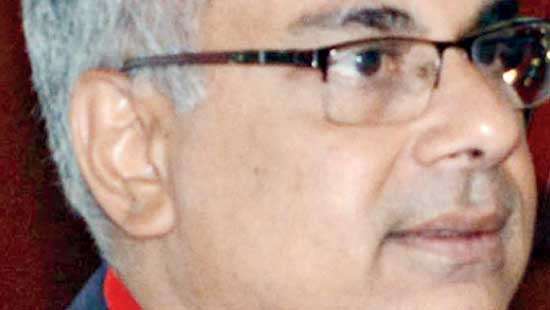Reply To:
Name - Reply Comment

By Nishel Fernando
The government must take a scientific approach focusing on revenue elasticity when deciding taxes on alcohol and tobacco to collect an optimal tax revenue as they are not “a cow that can be eternally milked,” an expert opined.
tobacco to collect an optimal tax revenue as they are not “a cow that can be eternally milked,” an expert opined.
“Although, alcohol and tobacco are prone to be inelastic, there are substitutes. Beedi is a substitute, and beedi has three times the volume of sticks of legal tobacco. There are substitutes for legal alcohol. You have illegal alcohol and home-brewed illicit alcohol. This is not a cow that can be eternally milked,” JB Securities Limited CEO and Advocata Institute Chairman Murtaza Jafferjee said.
He made these remarks delivering the 24th Annual Tax Oration of CA Sri Lanka in Colombo last week.
Jafferjee pointed out that tax revenue from alcohol and tobacco has become static amid high taxation as consumers shift towards cheaper alternatives.
“Over a period of time, there has been a significant reduction in stick volumes. The other problem you have with cigarettes is that there are 1.6 million daily smokers. It’s a certain class of people who smoke. So you are putting an enormous amount of burden on that to account 6-7 percent of government revenue. In terms of liquor, there has been growth, but the growth is quite slow,” he added.
Given the declining tax revenue on cigarettes and static tax revenue on alcohol, he noted that it cannot be considered entirely elastic due to leakages. Hence, he argued that the government should take a scientific approach when taxing alcohol and tobacco.
“At policy level, there are those who say we should index the taxes. I don’t agree with that. If this is what happens, what’s the point? It’s not totally elastic. In Sri Lanka’purchasing power parity (PPP) context, we have one of the most expensive cigarettes in the world. On a US$ basis, we are more expensive even than Japan. So, we have to be very scientific in our policy, we can’t be emotional saying we can’t cut cigarettes tax, because smokers will smoke,” Jafferjee said.
Cigarette and alcohol taxation should not be simply indexed to inflation. Careful consideration should be given to revenue elasticity in deciding the optimal taxation,” he elaborated.
Further, he pointed out that 40 percent corporate income tax imposed on sin industries is often passed on to consumers given the monopoly power.
Moreover, he pointed out that illegal liquor is thriving in isolated areas as there are no licensed outlets, which has resulted in a loss of revenue to the government. Hence, he proposed the government to liberalise the licensing of outlets which would be a beneficial policy in improving the availability of legal liquor and thereby increase revenue collections.